Search Definitions
Browse Content (p. 134)
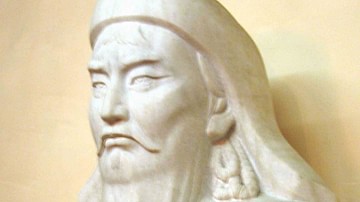
Definition
Genghis Khan
Genghis Khan (aka Chinggis Khan) was the founder of the Mongol Empire which he ruled from 1206 until his death in 1227. Born Temujin, he acquired the title of Genghis Khan, likely meaning 'universal ruler’, after unifying the Mongol tribes...
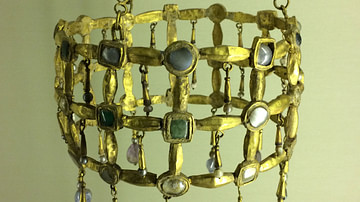
Definition
Visigoth
The Visigoths were the western tribe of the Goths (a Germanic people) who settled west of the Black Sea sometime in the 3rd century CE. According to the scholar Herwig Wolfram, the Roman writer Cassiodorus (c. 485-585 CE) coined the term...
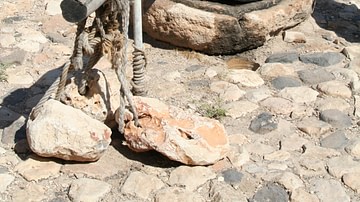
Definition
Ancient Israelite Technology
Technology enabled ancient Israel, the Northern Kingdom excluding Judah, to be economically prosperous and establish itself as a major political power as early as the 10th century BCE, steadily growing until its destruction in 720 BCE. Some...
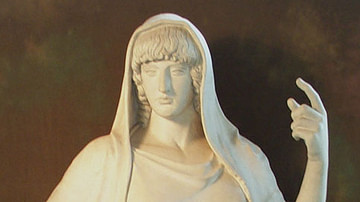
Definition
Hestia
Hestia was the Greek virgin goddess of the hearth, home, and hospitality. In Greek mythology, she is the eldest daughter of Cronus and Rhea. In her role as a protector of the family and political community, sacrifices and offerings were regularly...
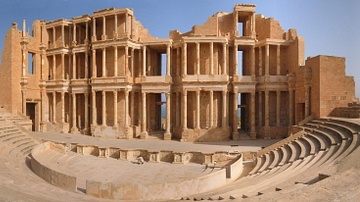
Definition
Sabratha
Sabratha was an ancient port city on the coast of North Africa (in modern-day Libya). The site was originally inhabited by the indigenous Berber Zwagha tribe in the 8th century BCE (according to the 11th-century CE historian al-Bakari) who...
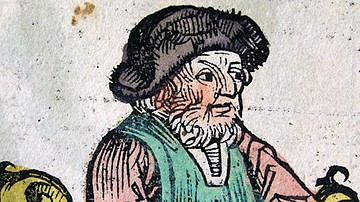
Definition
Anaximenes
Anaximenes of Miletus (l. c. 546 BCE) was a younger contemporary of Anaximander and generally regarded as his student. Known as the Third Philosopher of the Milesian School after Thales (l. c. 585 BCE) and Anaximander (l. c. 610 - c. 546...
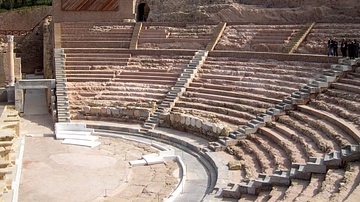
Definition
Carthago Nova
Carthago Nova (modern-day Cartagena) was a city on the southern Iberian Peninsula, Spain, originally known as Mastia. Human habitation of the region predates the Neolithic Period, but the area around the site of Carthago Nova seems to have...
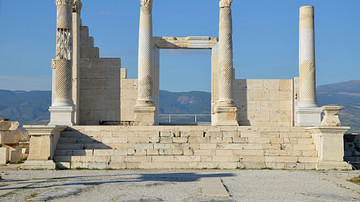
Definition
Phrygia
Phrygia was the name of an ancient Anatolian kingdom (12th-7th century BCE) and, following its demise, the term was then applied to the general geographical area it once covered in the western plateau of Asia Minor. With its capital at Gordium...
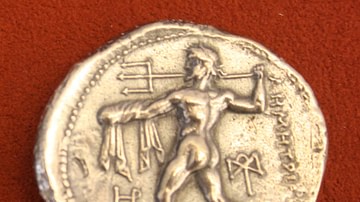
Definition
Poseidon
Poseidon was the Greek god of the sea and rivers, creator of storms and floods, and the bringer of earthquakes and destruction. He was perhaps the most disruptive of all the ancient gods but he was not always a negative force. He was a protector...
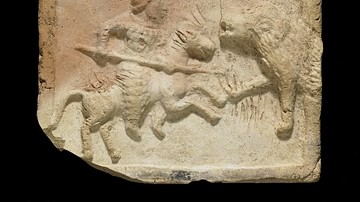
Definition
Parthian Warfare
Parthian warfare was characterized by the extensive use of cavalry and archers. Coming at enemy troops from all directions Parthian riders created confusion and wreaked havoc. They even developed the famous “Parthian shot.” Able to shoot...